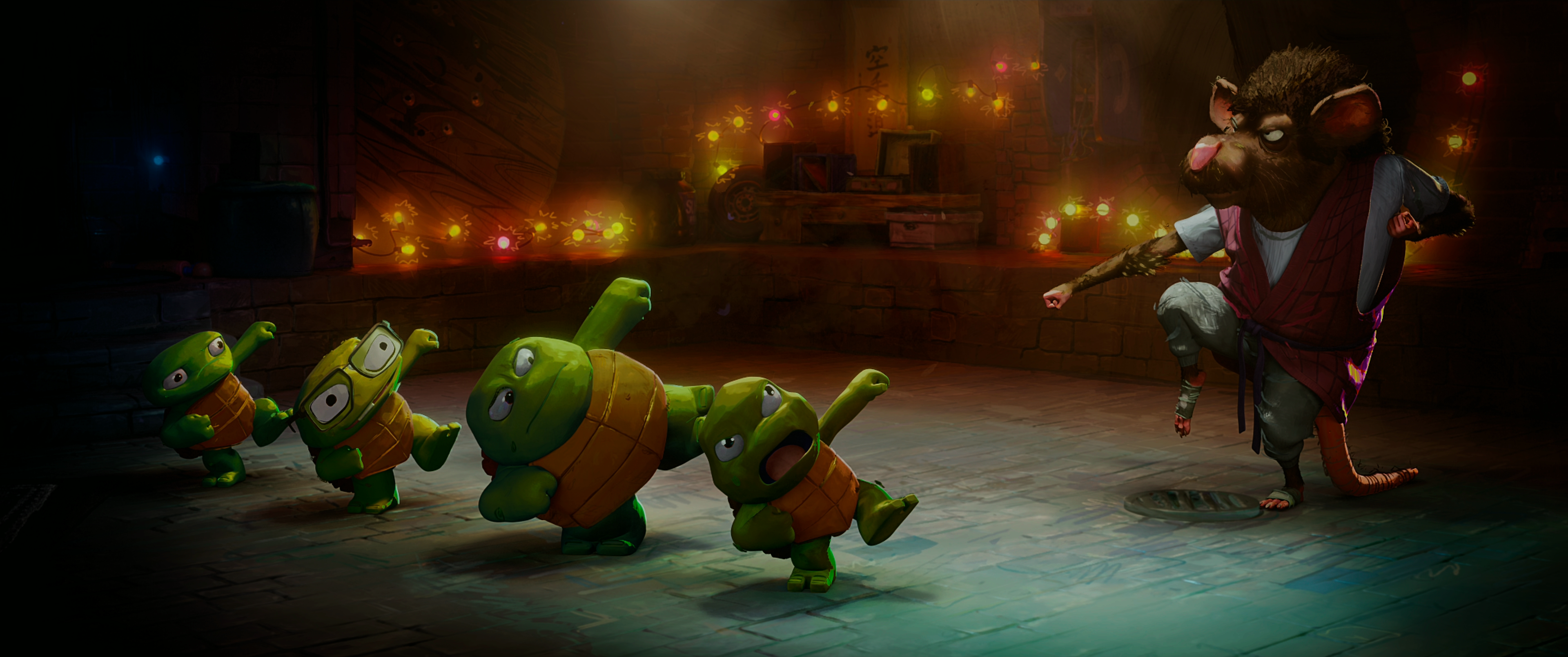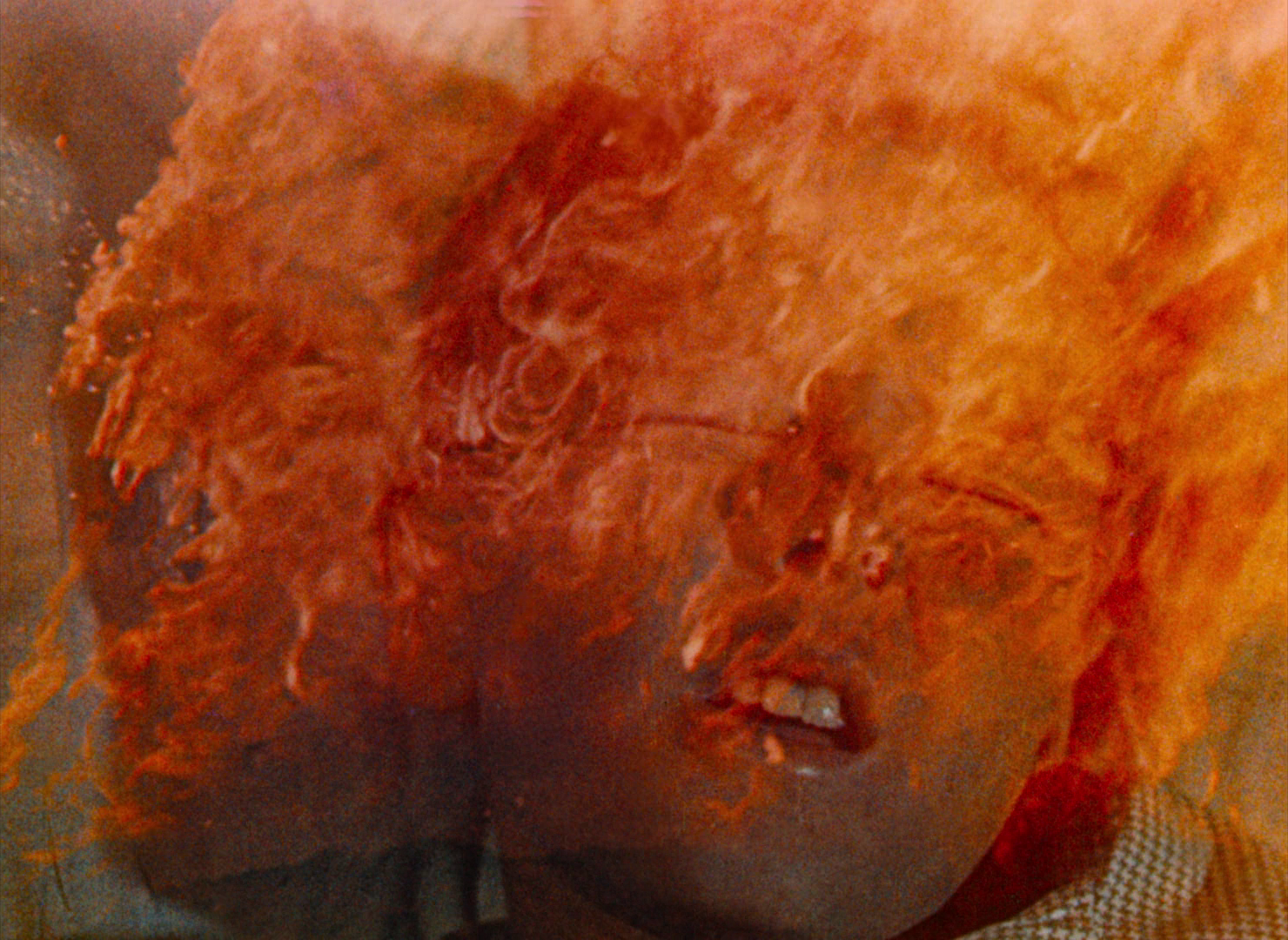Teenage Mutant Ninja Turtles: Mutant Mayhem (2023) – 4K Ultra HD + Digital Code

***½/**** Image A Sound A Extras B-
screenplay by Seth Rogen & Evan Goldberg & Jeff Rowe and Dan Hernandez & Benji Samit
directed by Jeff Rowe
by Walter Chaw There’s a flair to the design of Jeff Rowe’s Teenage Mutant Ninja Turtles: Mutant Mayhem (hereafter Mutant Mayhem)–a joy, an edginess, an energy that reminded me instantly of those halcyon MTV days of “Liquid Television”, when things like “Beavis & Butthead” would give way to “Aeon Flux”. It’s outlaw stuff, verging on the experimental, and the images are so vibrant they occasionally feel as if they’ll bounce outside the edges of the screen. I love how the colours behave like they’re refracting through a prism, like neon off the wet pavement of New York City, where the film is set. For as fresh and as the animation feels, as innovative, it’s not so ostentatious as to deviate from considerations of physics and space. It doesn’t draw attention to itself at the expense of character and story. Its hyperreality, its gloss on the new, merely lends urgency to the picture’s quotidian reality. Consider an early scene in which our heroes watch a public screening of Ferris Bueller’s Day Off in the middle of Brooklyn. Taught to be afraid of the prejudice of others, they’re hidden in the dark of a rooftop across the way. Seeing Ferris perform in a parade, they dream of what it must be like to go to high school, even of the simple camaraderie of sitting with friends on a humid summer night with a future laid out before them full of possibility rather than a life’s sentence of paranoia and rejection. Having had their fill of longing, they leave the scene, pausing before their descent into the sewers to take in the full tableau of a flickering image on a screen illuminating the crowd gathered before it.

 by Walter Chaw
by Walter Chaw